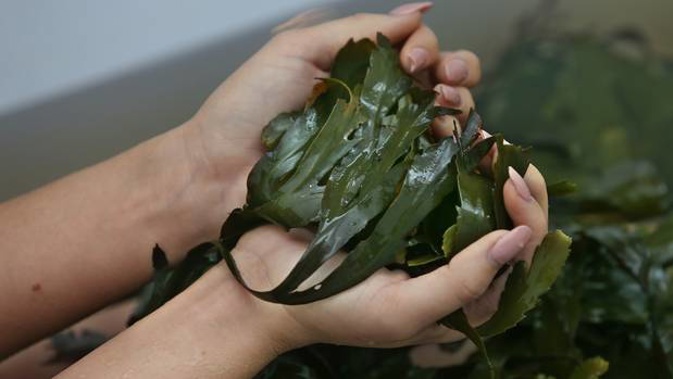
A study co-authored by a Kiwi scientist has been singled out among 250 ground-breaking findings that could "help change the world".
Springer, a US-based company that publishes academic journals, selected 250 published scientific findings across all disciplines in an initiative called Change the World, One Article at a Time.
Springer said it believes the selected articles, all published in 2017, can have an impact on society's most pressing problems.
Dr Wendy Nelson, a principal scientist at Niwa and a University of Auckland researcher, co-authored a paper exploring the potential of commercial seaweed farming in mitigating global carbon dioxide levels, a key greenhouse gas responsible for man-made climate change.
Nelson has been part of a group of experts in the Asia-Pacific region dedicated to raising interest in what has become known as "blue carbon".
Blue carbon was carbon stored and sequestered in coastal ecosystems such as mangrove forests, seagrass meadows, saltmarshes and seaweed beds.
They take CO2 from the atmosphere via photosynthesis at the same time as releasing oxygen.
/arc-anglerfish-syd-prod-nzme.s3.amazonaws.com/public/XCKDL7ZNXRCHDHKCHJQLXEO6DE.jpg)
Most of the carbon remains locked in the biomass of the plants.
This was important because the release of carbon into the atmosphere is a major driver of climate change, yet these marine ecosystems were capable of storing up to 10 times the amount of carbon as the same area of land-based forests.
Nelson said the paper tackled whether it would be possible to develop more seaweed aquaculture to mitigate the impacts of ocean acidification and the potential for converting their biomass to biofuel, which could reduce the use of fossil fuels and provide renewable alternative fuels.
Seaweeds were harvested for use as food, feed for aquaculture, fertiliser for agriculture, and in industrial and pharmaceutical applications.
The industry was well-established in several Asian countries but in its infancy in New Zealand and Australia.
By calculating the total annual production of seaweed in the Asia-Pacific region and the total amount of carbon they accumulate annually, the authors of the paper determined that increasing the area available for seaweed aquaculture would help mitigate excessive CO2 emissions and could provide a renewable biofuel resource.
While the paper focused on the potential of fleshy algae for these uses, Nelson said that coralline algal beds were also slowly being recognised as having a key role in our changing climate.
Large beds recently discovered in the Kermadecs could be particularly important.
"We need to consider the fate of carbon being absorbed by marine systems," she said.
"How we protect the marine environment to maintain these ecosystems is an exciting area of research."
Take your Radio, Podcasts and Music with you









